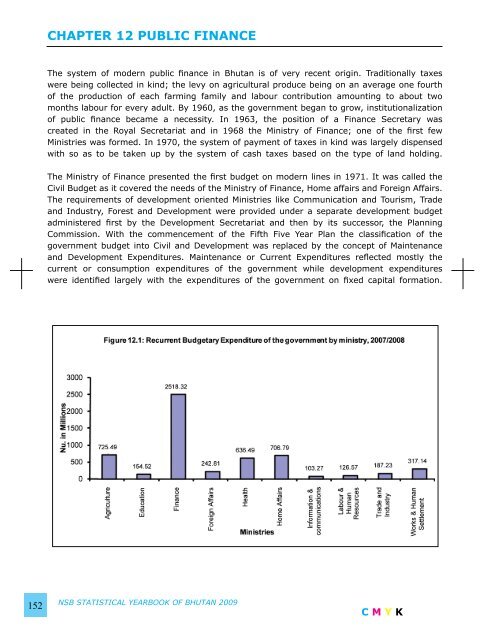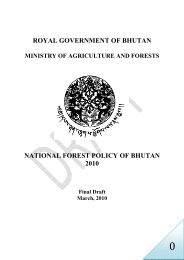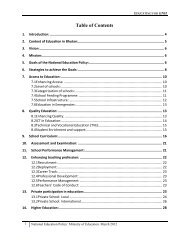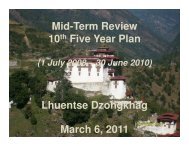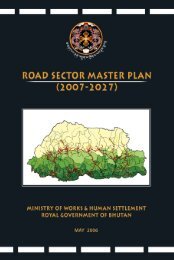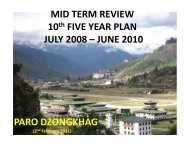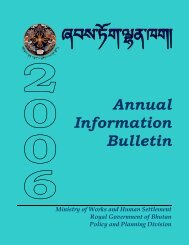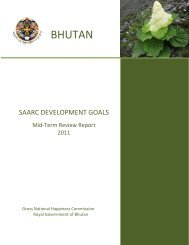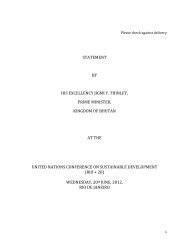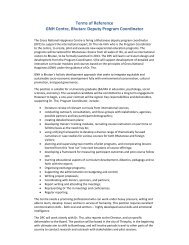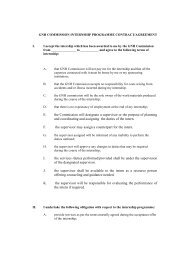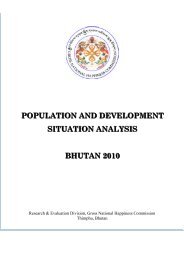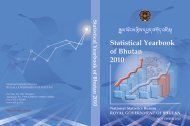National Statistics Bureau - Gross National Happiness Commission
National Statistics Bureau - Gross National Happiness Commission
National Statistics Bureau - Gross National Happiness Commission
Create successful ePaper yourself
Turn your PDF publications into a flip-book with our unique Google optimized e-Paper software.
CHAPTER 12 PUBLIC FINANCE<br />
The system of modern public finance in Bhutan is of very recent origin. Traditionally taxes<br />
were being collected in kind; the levy on agricultural produce being on an average one fourth<br />
of the production of each farming family and labour contribution amounting to about two<br />
months labour for every adult. By 1960, as the government began to grow, institutionalization<br />
of public finance became a necessity. In 1963, the position of a Finance Secretary was<br />
created in the Royal Secretariat and in 1968 the Ministry of Finance; one of the first few<br />
Ministries was formed. In 1970, the system of payment of taxes in kind was largely dispensed<br />
with so as to be taken up by the system of cash taxes based on the type of land holding.<br />
The Ministry of Finance presented the first budget on modern lines in 1971. It was called the<br />
Civil Budget as it covered the needs of the Ministry of Finance, Home affairs and Foreign Affairs.<br />
The requirements of development oriented Ministries like Communication and Tourism, Trade<br />
and Industry, Forest and Development were provided under a separate development budget<br />
administered first by the Development Secretariat and then by its successor, the Planning<br />
<strong>Commission</strong>. With the commencement of the Fifth Five Year Plan the classification of the<br />
government budget into Civil and Development was replaced by the concept of Maintenance<br />
and Development Expenditures. Maintenance or Current Expenditures reflected mostly the<br />
current or consumption expenditures of the government while development expenditures<br />
were identified largely with the expenditures of the government on fixed capital formation.<br />
152<br />
NSB STATISTICAL YEARBOOK OF BHUTAN 2009<br />
C M Y K


